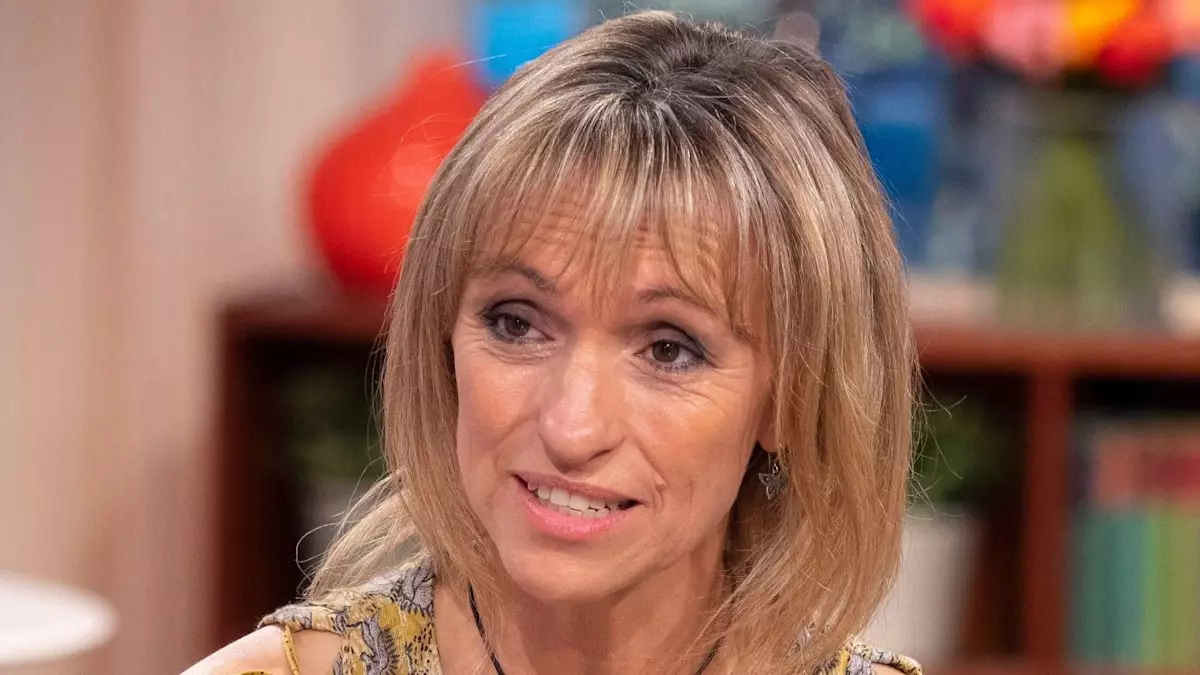Michaela Strachan, the beloved presenter of “Springwatch,” has courageously shared the emotional and physical challenges she confronted following her breast cancer diagnosis in 2014. On Vanessa Feltz’s show, Strachan opened up about the life-altering decision to undergo a double mastectomy. What struck me as particularly powerful was her reflection on the unexpected significance of her breasts. She admitted that while they never anchored her identity, the prospect of losing them imbued them with newfound value—a poignant reminder of how we often take certain aspects of our physical selves for granted.
Her narrative delves deeper than mere medical statistics or physical scars. Strachan’s candid acknowledgment of the emotional turmoil accompanying such a drastic procedure highlights a truth that often gets overshadowed in discussions around cancer treatment: the psychological toll can be just as monumental as the physical one. It is these multifaceted battles—internal and external—that truly define the resilience of individuals facing similar life-threatening challenges.
The Brutality of Traditional Treatment
Characterizing the mastectomy as “brutal,” Strachan does not shy away from expressing her discontent with conventional cancer treatments. This viewpoint resonates with a growing sentiment among many diagnosed with various ailments, indicating that we should question outdated medical practices. Her hope is to see advancements in treatment options, aspiring for a future where such radical procedures are deemed archaic—a vision worth pursuing.
This reflection raises essential questions about the evolution of medical practices and patient care. Why must women endure such invasive procedures? Strachan’s thoughts provoke discussions around the need for innovation in cancer treatment, urging both medical professionals and patients to advocate for less harmful alternatives. The stark reality is that her experience is not unique; countless women face similar dilemmas when deciding whether to prioritize their health over their body image.
The Long Road of Recovery
Michaela’s narrative continues into her recovery, a six-week journey post-mastectomy followed by another six weeks for breast reconstruction. Struggling through physical rehabilitation, she talks of the necessity of physiotherapy, highlighting an aspect often overlooked in the public conversation: that healing is not merely a process of medical intervention but one that encompasses emotional and physical restoration.
It’s refreshing to see her speak candidly about the aftermath of her experience. While many may expect that such an experience would linger in the forefront of her mind, Strachan revealed that she has moved past it—so much so that she occasionally forgets she ever had breast cancer. This level of resilience serves as both an inspiration and a reminder that healing encompasses more than physical restoration; it is an integration of body and mind in the forward march of life.
A Personal Life Intertwined with Loss
Strachan’s commitment to her partner, Nick Chevallier, since 2003 encapsulates both love and complexity. Their relationship began amidst profound grief—Chevallier carrying the weight of losing his late wife to colon cancer. This backdrop enhances their connection, demonstrating how love can both blossom and be tested in the face of overwhelming loss.
Interestingly, the couple has chosen not to marry, embracing a philosophy that challenges societal norms. Strachan’s assertion that marriage can be an unnecessary financial burden provokes thought about traditional conventions versus personal choice. This decision underscores an emerging trend in relationships where emotional commitment takes precedence over formal legality.
The dynamics of their partnership are reflective of a deeper narrative within relationships formed in the shadows of grief. Strachan’s experience sheds light on the intricate layers of human connection, resilience, and the ability to navigate life’s complexities while supporting each other through shared pain and healing.
Michaela Strachan’s journey is not just one of survival, but one of embracing life’s imperfections. Her story invites us to recognize the importance of open dialogue regarding health, relationships, and the personal trials that shape us all. It is a reminder that even in the face of darkness, the human spirit has an incredible capacity for bravery, adaptability, and love.

